- Many temporary shelters inaccessible to people with physical disabilities
- Overburdened care system often provides few alternatives to institutions for older people
- Authorities and humanitarian actors must ensure an inclusive response
Displaced older people with disabilities in Ukraine are physically and financially unable to access adequate housing and care amid Russia’s ongoing invasion, sometimes leaving few alternatives to being placed in residential institutions, Amnesty International said in a new report today ahead of the International Day of Persons with Disabilities.
The report, ‘They Live in the Dark’: Older people’s isolation and inadequate access to housing amid Russia’s invasion of Ukraine, documents how Russia’s full-scale invasion, which began in February 2022, has placed unprecedented strain on Ukraine’s already overburdened care system. As a result, many older people, including older people with disabilities, have been separated from their families, leading to their segregation and isolation.
Russia’s continuing indiscriminate attacks, many of which amount to war crimes, have displaced millions of Ukrainian civilians from their homes. Ukraine has one of the highest proportions of older people in the world: nearly 10 million of its population of about 41 million, almost a quarter, were aged over 60 before February 2022.
“Even after being displaced to safer parts of Ukraine, older people, particularly those with disabilities, are still facing enormous difficulties in rebuilding a dignified life, struggling to access adequate housing, support services and healthcare,” said Laura Mills, researcher on older people and people with disabilities at Amnesty International.
Russia’s invasion has placed an immense strain on Ukraine’s already struggling social care system
Laura Mills, researcher on older people and people with disabilities at Amnesty International
“Russia’s invasion has placed an immense strain on Ukraine’s already struggling social care system. The humanitarian response is failing to meet this urgent need for accessible housing and support services, and as a result thousands of older people with disabilities are being segregated in institutions, far from their loved ones and isolated from their communities.
“Institutions should not be seen as the default option for displaced older people, including older people with disabilities. There are simple changes – such as building ramps in temporary shelters – that can be made to ensure families are kept together, which would vastly improve the quality of life for people who require mobility support.” Amnesty International interviewed 159 people between May and September 2023 for this report, including 89 older people, many of whom had disabilities, and 22 social or healthcare workers. Researchers also visited 24 temporary shelters.
Amnesty International recognizes that the fastest way to protect the rights of all civilians in Ukraine, including older people, is for Russia to end its war of aggression.
Inaccessible housing
While most displaced people in Ukraine are living in rented accommodation, extremely low pensions and high rent costs render this type of housing unaffordable for many older people.
As a result, older people often live in large numbers in temporary shelters for displaced people in schools, dormitories, and other public buildings.
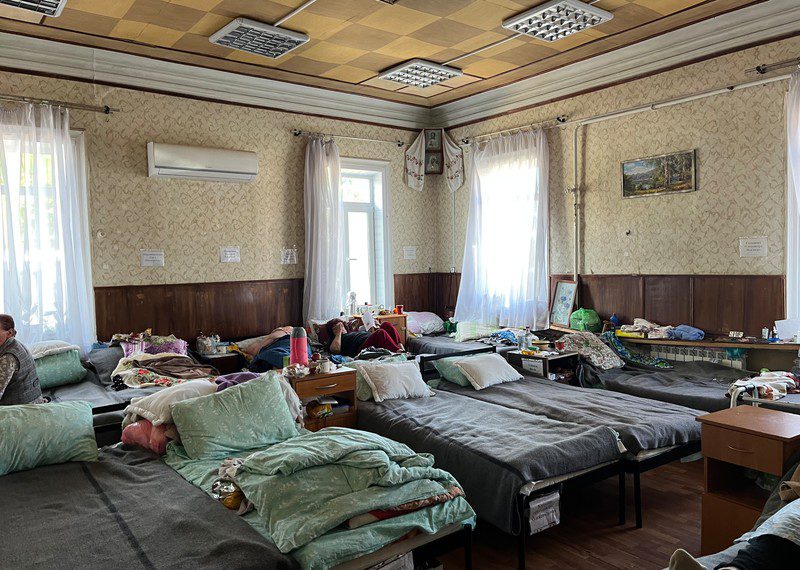
However, almost all shelters that Amnesty International visited were partially or completely inaccessible to people with physical disabilities. Many lacked ramps to enter the building, elevators, grab bars to make toilets accessible, or enough space for a wheelchair user to make a full turn.
People in wheelchairs came to us. But we couldn’t even take them in for the night; we had to turn them away
A director of a youth camp in Koviahy, Kharkiv region, which had been converted into a shelter
A director of a youth camp in Koviahy, Kharkiv region, which had been converted into a shelter, told Amnesty International: “People in wheelchairs came to us. But we couldn’t even take them in for the night; we had to turn them away. We don’t have a ramp in front of the building.”
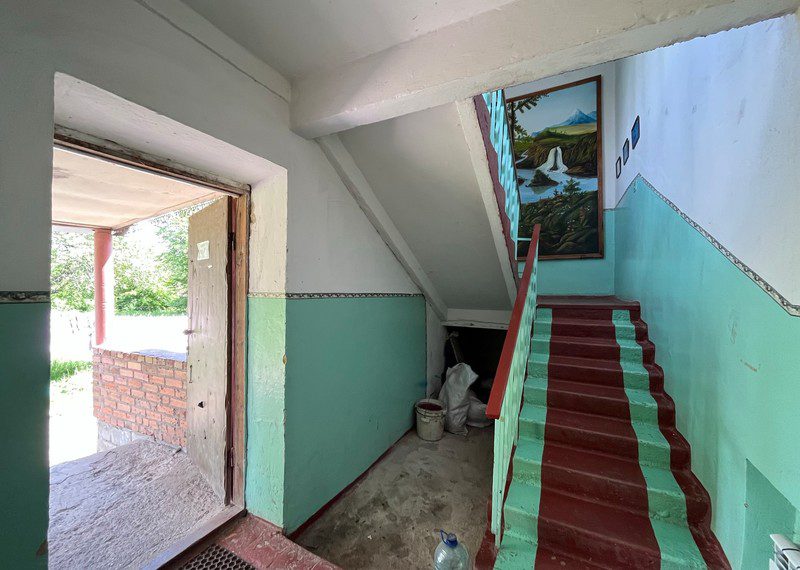
Ukraine is a state party to the Convention on the Right of Persons with Disabilities (CRPD), meaning the Ukrainian government is required to ensure that people with disabilities have access to their physical environment on an equal basis, including during situations of armed conflict. International partners should support Ukraine, including through financing and providing materials to make shelters physically accessible.
Amnesty International researchers were repeatedly told that the lack of physically accessible shelters meant shelter staff felt they had no option but to send older people with disabilities into institutions.
Lack of adequate health and social care
Shrapnel flew into my yard. I lost consciousness… I can’t see from my left eye anymore… Before I walked with only one cane, now I need two Nina Melnychenko, 85, in Mykolaiv region
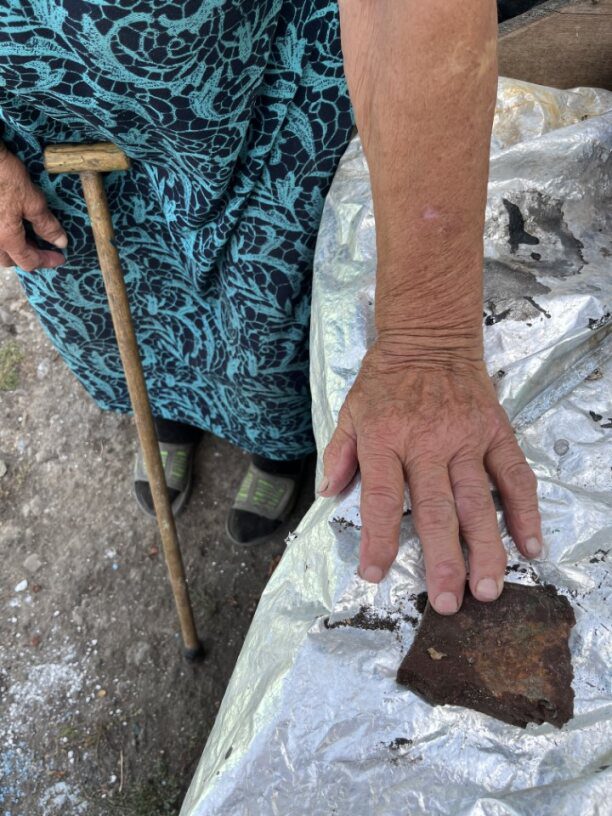
Nina Melnychenko, 85, described suffering lasting injuries after an explosion near her home in Mykolaiv region: “Shrapnel flew into my yard. I lost consciousness… I can’t see from my left eye anymore… Before I walked with only one cane, now I need two.”
Older people with disabilities, including the growing number who have conflict-related disabilities, are often unable to access disability-related services or healthcare. This lack of care and support is compounded by the fact that many younger relatives who would have previously supported older people with their care needs have either fled abroad or to other parts of Ukraine or have been enlisted into the military.
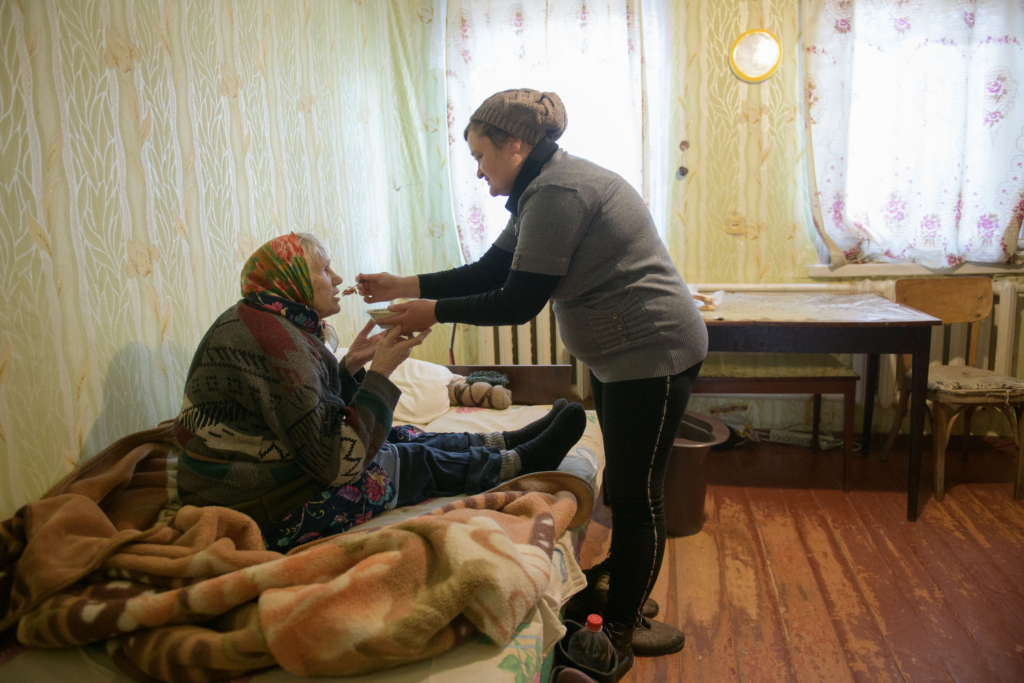
As a result, social workers who provide home-based care are completely overwhelmed, unable to meet the needs of or provide adequate support to all the older people who require it.
The lack of sufficient social workers has contributed to the institutionalization of older people with disabilities, as they are unable to remain in their homes without specialized support.
‘The hardest thing is you have no social interactions’
Older people with disabilities who have been placed in institutions are often separated from relatives who live in shelters for the general population. Separating people with disabilities into institutional settings – which can include long-term stays in hospitals, where many displaced older people are also living – is a form of segregation, according to the CRPD Committee.
Institutionalization can lead to numerous human rights violations, including physical abuse, neglect, and detrimental impacts on right to health. As one social worker explained, many older people in Ukraine now “live in the dark”.
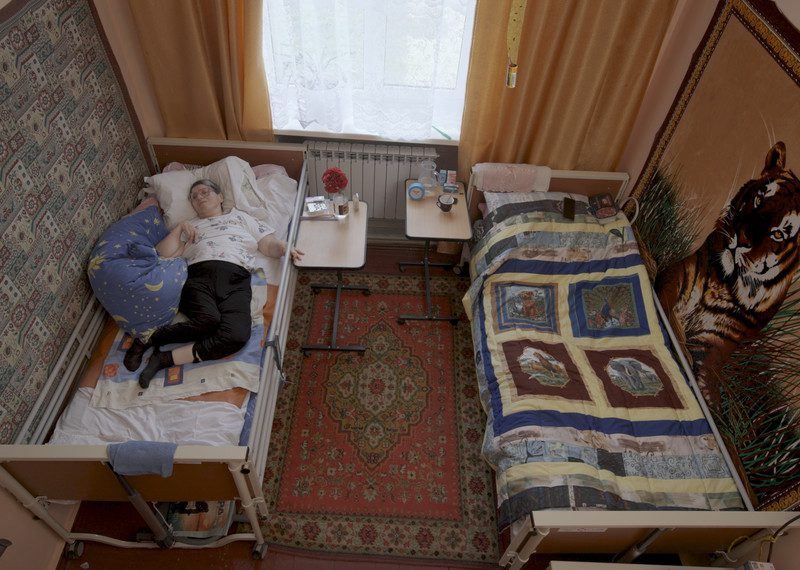
Life lying down is unbearable. The hardest thing is you have no social interactions. I was never a ‘bedridden’ person, I was always able to use my wheelchair
Halyna Dmitriieva, 52, who has cerebral palsy
Halyna Dmitriieva, 52, has cerebral palsy, and was not put in her wheelchair for several months whilst living in an institution. She said: “Life lying down is unbearable. The hardest thing is you have no social interactions. I was never a ‘bedridden’ person, I was always able to use my wheelchair.”
Older people with dementia or other cognitive disabilities appeared particularly at risk of getting lost in the institutional system after losing contact with relatives during the conflict.
An 83-year-old woman with dementia was placed in an institution in Odesa after being displaced, and lost contact with her son. She said: “I don’t know how to look for him. There is no way to telephone him… I have nowhere else to go.”
Many older people expressed feelings of isolation after being separated from younger relatives who had fled abroad or moved to other parts of the country.
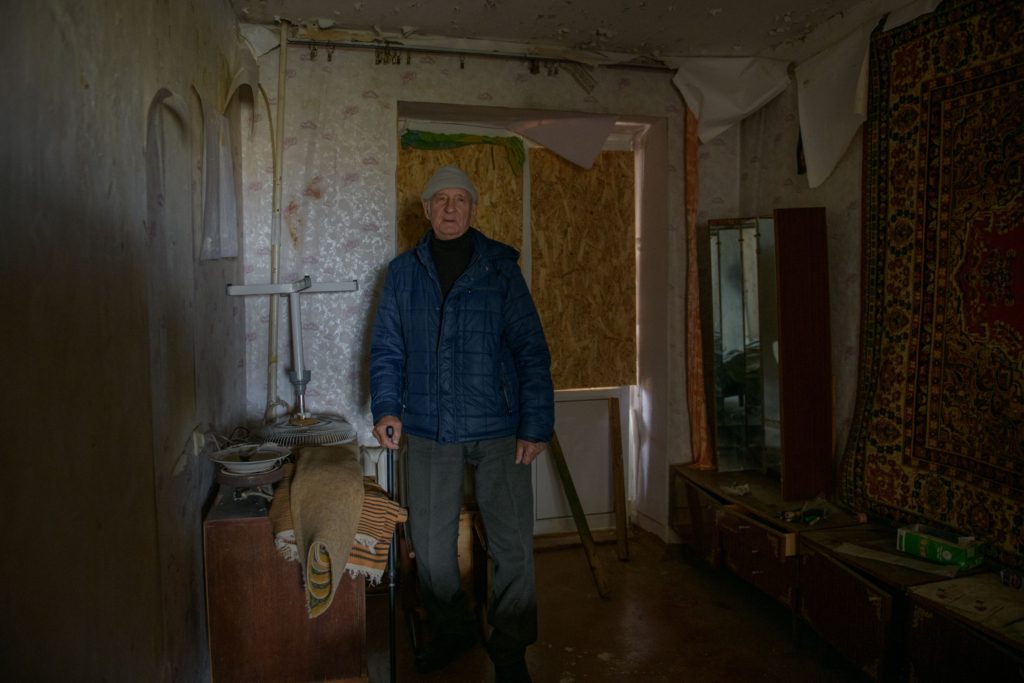
“Foreign donors and humanitarian organizations must provide financial and technical support to help relieve the workload of social care providers who are courageously putting their lives at risk, and help to increase their capacity,” said Laura Mills.
“The costs and logistics of an inclusive response that ensures all older people can live independently with dignity in the community should not have to be met by Ukraine alone.”
Background
Amnesty International commissioned a 15-minute documentary film by Ukrainian independent director Marina Chankova. Dreaming in the Shadows, which features three older people in Ukraine who have been displaced or are still living in areas directly impacted by the war, can be watched here.
Amnesty International has been documenting war crimes and other serious violations of international humanitarian law since the beginning of Russia’s full-scale invasion of Ukraine. This includes the December 2022 report, ‘I used to have a home’: Older people’s experience of war, displacement, and access to housing in Ukraine.
For more on Amnesty International’s work on the rights of older people, visit https://www.amnesty.org/en/what-we-do/older-people/.
